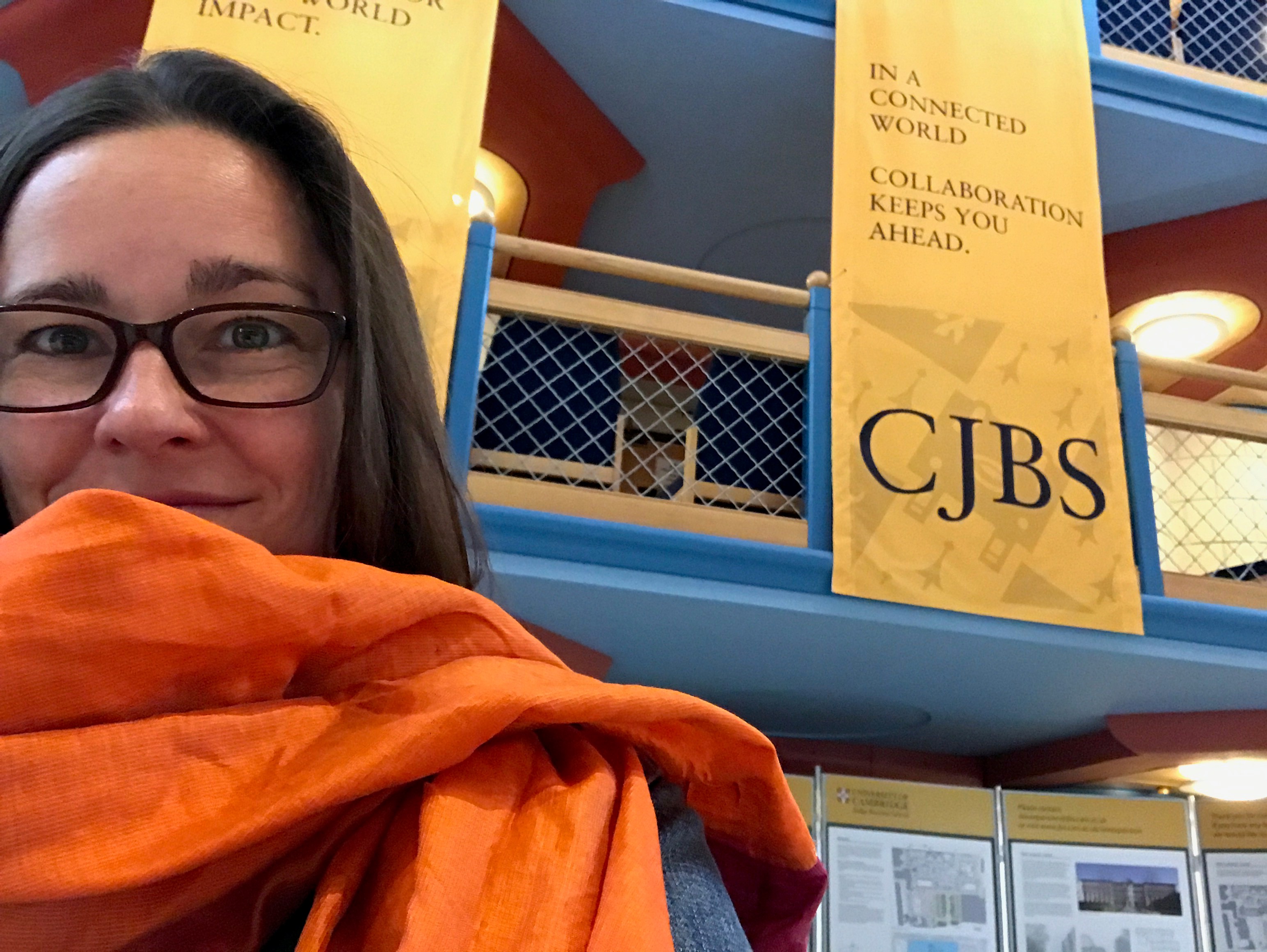Diana Henderson (EMBA 2016) writes about the importance of emotional intelligence as a leadership tool.

Humility, deep listening skills and insight into people & team dynamics are some of the soft leadership skills that differentiate good from great leaders. Leadership is not simply charisma but also the capacity to understanding the culture of your team; the heart beat of your organisation. At Cambridge Judge Business School, teachings on leadership permeate the entire curriculum for the Executive MBA (EMBA). I am fortunate enough to see strong leadership in practice at Cambridge, as some of my classmates are already leaders in their “day jobs”. I am lucky to benefit from their willingness to share, support and grow our team cohesively without arrogance or a sense of hierarchy.
We’ve all, at one point or another during our careers, seen poor leaders. Those that bark instruction, lack transparency, don’t communicate clearly and guide by bullying do not, as they should, create a psychologically safe space where employees can grow, learn, be creative in solving problems or have a sense of belonging and ownership over the progress of business objectives. Dealing with a “false leader” at work can be a great struggle, have a negative impact on the overall success of a team and reduce work satisfaction or commitment.
The course curriculum on the EMBA is structured in such a way that leadership is woven into every subject. I’ve learnt that skilled leadership requires a balance of all Emotional Intelligence (EI) components and the capacity to recognise when leveraging one EI component versus another will engender successful leadership and support the purpose or vision. This type of leadership commands great insight into human and organisational behaviour. Real leadership is powerful… and often difficult to come by as it is inherently inward-looking.
“Leadership is not the loudest person in the room or the individual that draws attention, but is calm, focused, insightful intervention with purpose.”
As an International Development Practitioner, I’ve been fortunate enough to have a career across four continents, languages and cultures. Leadership, although nuanced, has elements that are consistent across all institutional contexts, such as being inspirational, promoting team harmony and considering individual motives. All of which are rooted in “soft” skills. Cross-cultural leadership adds a complexity to the already onerous task of leadership; such as mitigating the difficulties of cross-cultural communication in a high versus low cultural context, ensuring that your approach to leadership engenders trust – knowing trust is built through cognitive experience (task-oriented) or affective experience (emotion-oriented) – or striking the balance of hierarchy and egalitarianism [1]. It is the thoughtful leader that reflects these subtleties in a quiet, powerful way before designing her or his approach.
What I take away from the theories we’ve learnt and the business leaders I have worked with is the subtly of greatness. Leadership is not the loudest person in the room or the individual that draws attention, but is calm, focused, insightful intervention with purpose; knowing that silence can be powerful. Great leaders don’t make leadership about themselves; they are authentic and collaborative and bring refined energy to their vision.
[1] Meyer, E. (2014) “Navigating the cultural minefield.” Harvard Business Review, 92(5): 119-123

Madhav Vempali
Very good analysis of Leadership skills and what makes a great transformational Leader in the presence of enormous diversity in the world.
R
Very well written paper. Congratulations, In my mind you are always a leader and will become a great leader.
RH
DB
Very insightful and shows learnings to be a great leader.
Michael
This is a well thought discussion on aspects of leadership that are often overlooked or missed. Very good piece of analysis.
Michael
Carole
There is wisdom and integrity here for any who attempt to lead and inspire, whatever the sphere of influence. Thank you for these valuable insights.